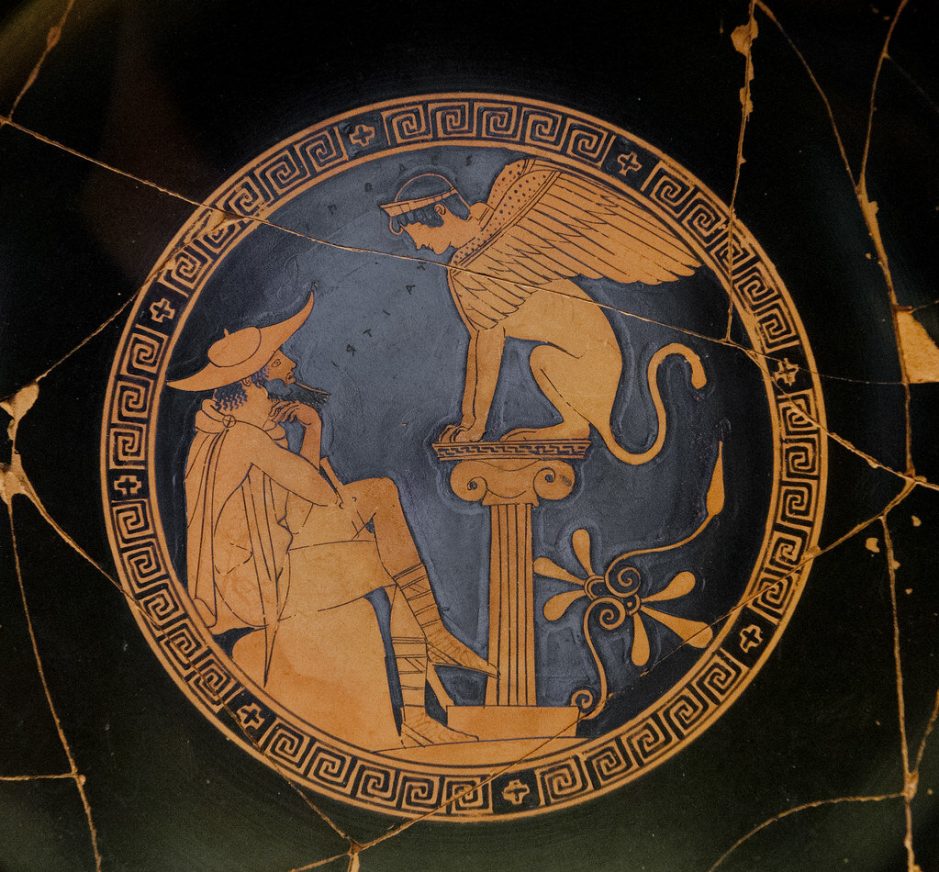It has always struck me as odd that Oedipus’ traumatic wounding and attempted murder by his parents is practically ignored in the Oedipus myth. By which I mean it is reported on, but the child’s original trauma at the hands of pathological parents/attempted murderers Laius and Jocasta is not explored.
I found an article that explores the significance of this trauma in depth, which I highly recommend.
“What we witness as the myth unfolds, brilliantly revealed in the course of Sophocles’ play, is the striking way knowledge is hinted at, even spoken about by some of the participants, but is not taken up and not investigated. The result is the creation of a situation often used as an example of dramatic irony, in which the audience knows the facts that the protagonists are denying. This irony adds to the tension of the play and to the meaning of the denouement.
Oedipus presents us with a picture of a normal, even ideal, family of his childhood in Corinth, but this idealisation continues to be applied to his current family in Thebes, despite the growing evidence that accumulates as the play proceeds. All the participants conspire to keep knowledge at bay and to avoid freeing up curiosity and pursuing the inquiry that would have shattered the idealised illusion. If we pay attention to the issue of infantile trauma, we see that the scars, infirmities, and swellings of the feet, the doubts about parentage, and the original prophecy that led Laius to attempt to kill his son, are also denied, even though they are there in the background and certainly known to the audience. The significance of the trauma is buried and replaced by a scenario that is initially meant to reassure and later is submerged beneath the horror of Oedipus’ guilt, Jocasta’s death, and the self-blinding.” ~John Steiner
In my play Enemies: Foreign and Domestic, a very loosely “inspired-by” adaptation of Oedipus Rex, the theme of child abuse is front and center.
